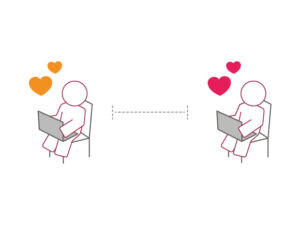
Remote work in the time of COVID-19
- 2 March 22
- 272 revirew
- 0 comment
 Remote work in the time of COVID-19
Remote work in the time of COVID-19Virtual Interview: Deputy Managing Director, MAHAK
The COVID-19 pandemic has, in one broad swipe, rewritten the rules regarding workspace and professional norms of interaction. In one important meeting on February 29, 2020, MAHAK decided to reposition much of its non-medical workforce to remote working the instant the previously unknown Coronavirus was officially acknowledged in the country as an epidemic virus. As much as half of that class of employees are still working from home.
In this vein, we have had an interview with the deputy managing director of MAHAK, Mehdi Khajenouri, regarding how working remotely is taking place at MAHAK and under what conditions this novel approach can be deployed by other community-based organizations.
Please share with our readers your personal experience about working remotely and its pros and cons?
For me personally, this was a novel, new experience because of the extent and depth of my responsibilities at MAHAK. I’ve never been in a position where I actually had to work remotely while holding a senior management position in an organization. Activating all the necessary arrangements to be able to conduct work remotely was not particularly easy in the very beginning, but on the positive note it proved to be very efficient after we managed to iron out some of the initial issues in this regard. But it still remains quite difficult to actually be able to have assignments done in a team working fashion when all the meetings are taking place virtually.
As far as personal experiences are concerned, I found it to be a positive one with my character and habits conducive to working from home. The flexibility it provides, the time one saves by not commuting, the possibility of working uninterrupted under ones control all proved very constructive. On the other hand, the support one receives instantaneously in house, the possibility of organizing meetings on-demand, the access to decision-making levels of organization being one knock away, the convenience of having all documents nearby, and the availability of the delicious food served at our canteen day in day out are sorely missed.
Do you think MAHAK’s experience in this regard can be adopted by other NGOs as a sustainable model of organizational operation?
Whether our experience has the inherent transferability to other NGOs depends to a large degree on the size and the organizational structure of those particular organizations. One vital issue here is the infrastructure and the common language that is required for remote work that with global communication networks having advanced so much in the last couple of decades, developing such mechanisms required to be able to work remotely in an efficient manner is not unreachable.
Generally speaking, the larger and more bureaucratic the organization is the more complex the process of defining remote work procedures, in my view. The smaller and more specialized NGOs should have an easier time with it provided they already possess a well-delineated system and have access to proper communication infrastructure. Of course, it also depends on the prevailing culture of professional undertakings in the society.
There are certain times or types of operations that can very easily be monitored and assessed from long distance. For instance, our call center in MAHAK is one of those types of operations. Nowadays it is common among large service-oriented companies to have their call centers stationed in a distant location. Our experience shows however, that as long as the activity can be monitored and its effectiveness assessed remotely, the work itself can be done remotely as well. For undertakings that are more difficult to define precisely upfront and their output cannot be quantified at the time programming, remote work may not be the answer yet. But we are certainly moving in that direction and one good thing that may come out of the pandemic experience is developing habits and lifestyles that are less tasking on the environment and more in line with the promise of technological advancements which is making life easier, less costly, more efficient and ultimately more equitable across an increasingly broad spectrum of socio-economic strata in every society.
To conclude I would say that we have been thrust into a new world and way of doing things that has upended many of our expectations and understandings; it’s important to be flexible, open to ideas, and continue to focus on driving productivity with implementing the most efficient working mechanism while protecting your employees.
